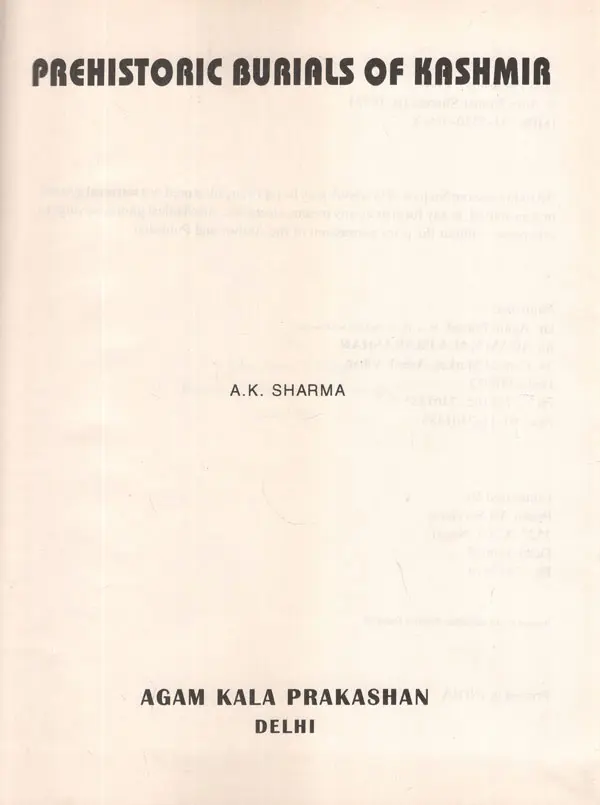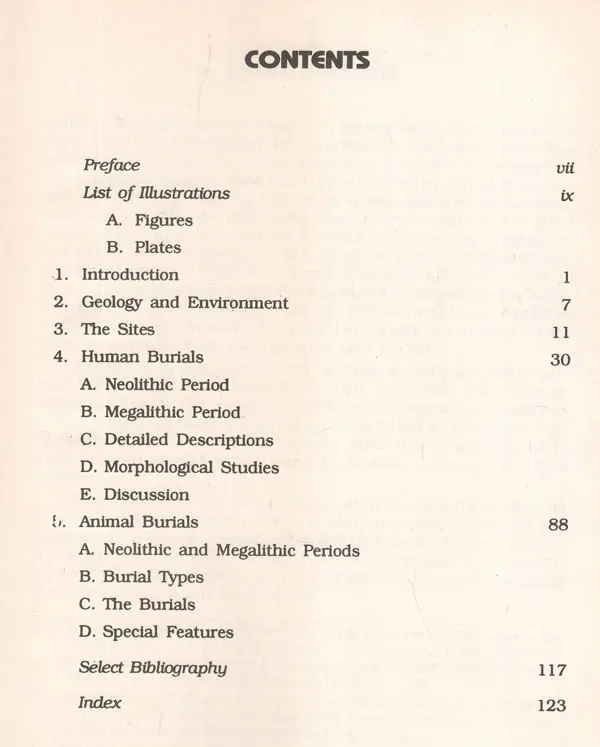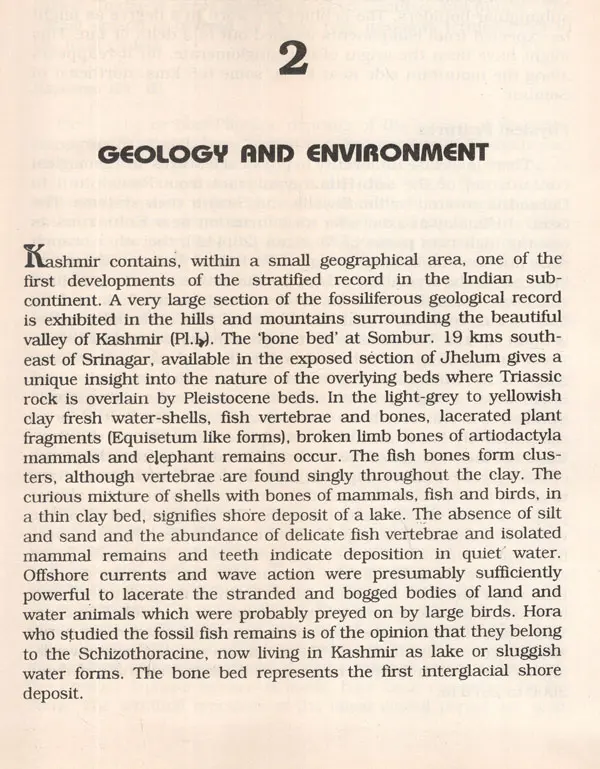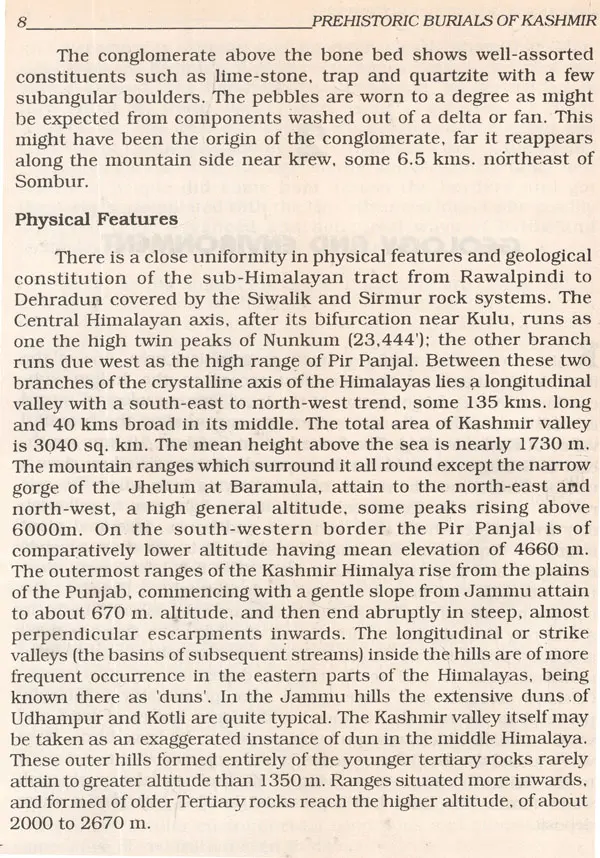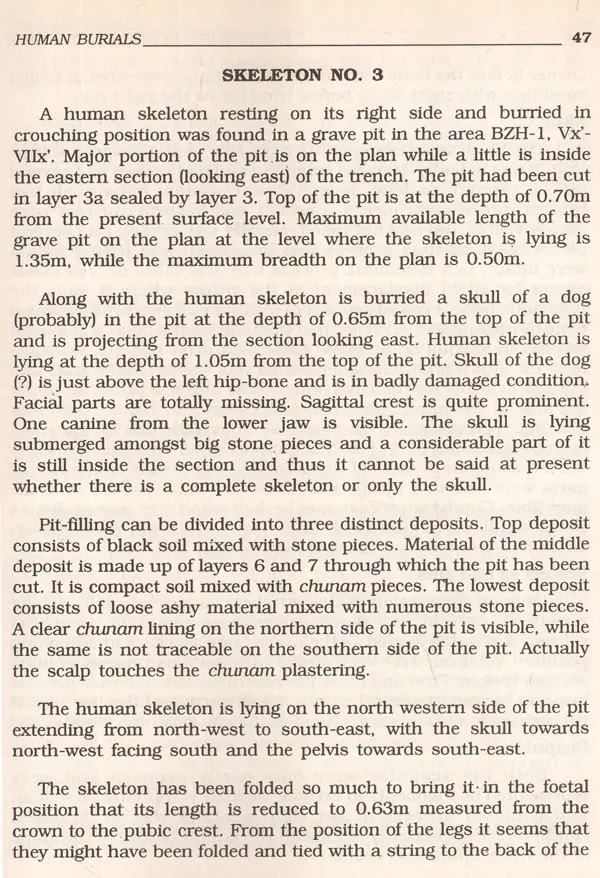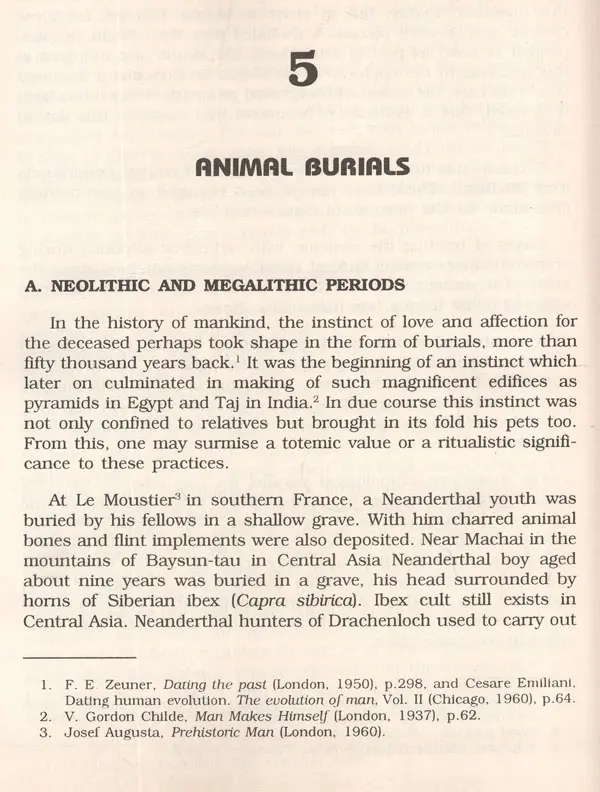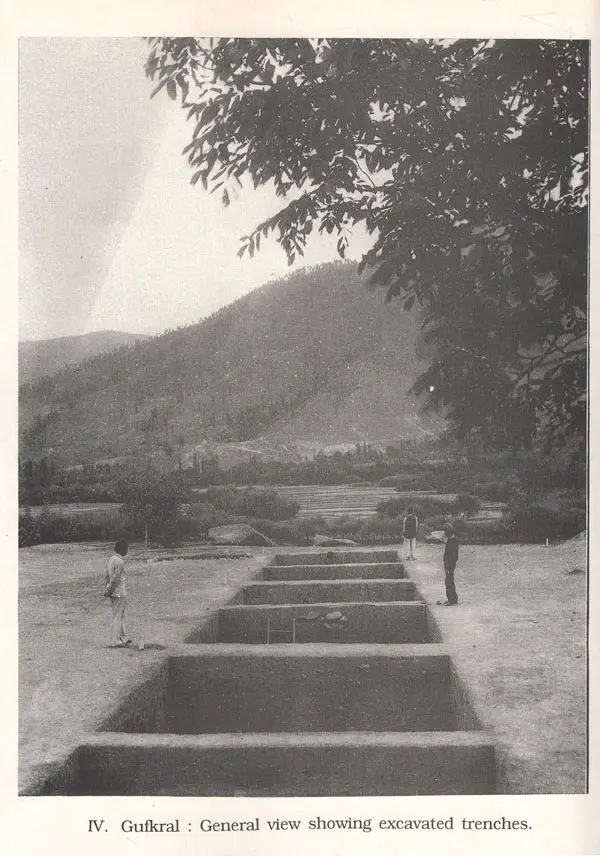
Prehistoric Burials of Kashmir (An Old and Rare Book)
Book Specification
| Item Code: | UAO483 |
| Author: | A . K. Sharma |
| Publisher: | Agam Kala Prakashan, Delhi |
| Language: | English |
| Edition: | 1998 |
| ISBN: | 817320036x |
| Pages: | 159 (B/W Illustrations) |
| Cover: | HARDCOVER |
| Other Details | 10.00 X 7.50 inch |
| Weight | 520 gm |
Book Description
Kashmir occupies a unique position in the development of New stone Age culture in India. Excavations at Burzahom and Gulfkral have revealed scores of new features unparallelled in the sub-continent. Large number of human and animal burials were exposed at Burzahom during 1962-64 by the author but the report remained unpublished. It is for the first time that such a large number of burials pertaining to neolithic age were excavated at one site and throughly studied. The present book gives a detailed description of all the burials including results of morphological studies conducted on human skeletal remains. The results bring forth not only the continuity of this culture of the valley for nearly 2000 years but also its contact with other cultures of the time. The morphological studies have brought to light the ethnic similarily of neolithic people of Kashmir with those of the plains of Jammu, Punjab and Haryana. The finding totally negatives the earlier held view of imigration from North China. This combination of field report and laboratory studies will be of immense value to the students of archaeology, anthropology and Kashmir history. The book on Kashmir assumes more importance in view of non publication of reports on Burzahom and Gufkral excavations.
Shri A.K.Sharma is an archaeologist of repute. He is internationally known for his original contributions in the field of archaeology and anthropology. During thirty three years of his hectic carreer, in different capacities in the Archaeological Survey of India he explored and excavated a number of sites throughout the length and breadth of the country, particularly in remote and inaccessible areas of North-East India, Jammu Kashmir and Lakshadweep. For the First time, through his field works he brought Sikkim and Lakshdweep Islands in the Archaeological map of the country. To his credit goes the discovery and excavation of the biggest Stone age site Anangpur, near Delhi, the biggest prehistoric cave of Kachagad in Maharashtra, the sprawling nucleus megalithic site in Chhattisgarh, unique Neolithic site of Gufkral in Kashmir valley, early historic sites of Sekta in Manipur and Vadagokugiri in Garo Hills of Meghalaya. He is also known for the discovery of horse bones of domesticated horse in Harappan context which have been internationally acknowledged and has changed the whole theory about Aryan migrations.
He has to his credit more than 50 published research papers on anthropology, archaeology, prehistory and other aspects of archaeology. His recent books, (1) Emergence of Early Culture in North-east India, (ii) prehistoric Delhi and its Neighbourhood, (iii) Manipur, the Glorious past, (iv) Early man in Eastern Himalayas and his popular writings in the India Magazine have been widely acclaimed From 1993 to 1994 Shri Sharma was the leader of Indian team in Indira Gandhi National Centre for the Arts, New Delhi where under Indo-French Rock Art project, he conducted detailed excavation in the rock -shelters at Jhiri, near Bhopal. Presently he is working as senior fellow of Indian Council of Historical Research on his project "Megaliths of Chhattisgarh including Bastar". His recent book on History of Tansa valley is being published by Gurudeva Siddha Peeth Ganeshpuri, Bombay.
In the archaeological excavations remains of flora and fauna, if carefully collected and scientifically studied, throw light on the environmental and climatic conditions of the ages to which the site belongs. Unfortunately in India, human and animal skeletal remains, now-a-days, don not get the importance in the site, that they deserve. Particularly animal bones are collected like the pottery sherds and sent to the pottery yard, where they are washed with hard brushes, before subjecting them to the thorough scrutiny of an archaeo-zoologist. This process results in the loss of many vital clues and evidences. Due to lack of properly trained physical anthropologists, human skeletal remains and burials are not thoroughly studied and recorded in the field in in-situ condition. Field observations and measurements are most vital and supplementary to laboratory analysis as due to fragile condition of the remains many clues are lost while lifting the bones part by part. It is with the aim of emphasising the importance of careful exposure of the burials and field recordings on them, that this book is being brought out. I hope the details given in the book would be helpful to the excavators and students of field archaeology. To give a comprehensive picture of Burzahom burials field observations and laboratory observations have been combined.
Jammu, Kashmir and Laddhakh are ancient lands where man lived right from the Palaeolithic limes onwards. Evidences regarding palaeolithic culture are so far scantly due to lack of research in this direction but from neolithic onwards the area abounds in sites and monuments. During historical times the king of Kashmir extended his domain even upto Gujrat. The valley was a great centre of learning. The origin of Kashmir Neolithic was somewhere in Central Asia. It started, in the valley, before C. 2920 B.C. and continued upto C. 1700 B.C. around which time a new wave of people entered the valley with the knowledge of Megalithic building. rice and iron. An interesting feature of the Kashmir valley Neolithic is its burials, both human and animal alongwith the human beings their pet animals such as dogs were also buried.
Researchers like Southworth 1 and 2 have found some indication that there might even have been some ancestral Sino-Tibetan language (s) in the region, which would correlate with the archaeological materials from Kashmir as found at Burzahom and Gufkral. Tikkanen suggests that the ancestral tongue related to modern Burushaski was spoken in Kashmir during the third millennium.
Encouraged by the environments of the enchanting valley, as soon as I got the opportunity to work there, particularly on the unique burial systems, comming to light for the first time, I rushed to the site with my wife. Though it was our first visit to the valley. I found every one, right from my collegues in the Archaeological Survery of India to the local people eager to help us.
**Contents and Sample Pages**
